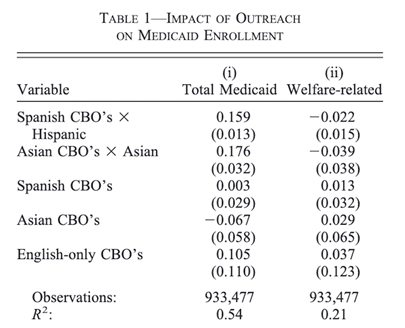Insurance rates among the Hispanic population in the United States, particularly in New Jersey, have historically been lower than those of other racial and ethnic groups.1 Several factors contribute to this disparity, including immigration status, language barriers, systemic challenges within the healthcare system, and a lack of employer-sponsored healthcare at many jobs accessible to these populations.2 This blog further explores the factors contributing to the low insurance rates among the Hispanic population in New Jersey, examines the steps being taken to address these challenges, and studies the effectiveness of these efforts.
Barriers to Health Insurance Among the Hispanic Population
One of the primary barriers to insurance coverage for the Hispanic population is immigration status.3 A significant portion of the uninsured Hispanic community include undocumented immigrants and individuals with uncertain legal status.4 These groups often face restricted eligibility for public health programs like Medicaid and the Children’s Health Insurance Program (CHIP).5 The fear of deportation also pushes away undocumented individuals from seeking health services,6 even when they may qualify for some assistance. This fear is heightened by policies and practices that could involve healthcare providers sharing data with immigration authorities, resulting in a lack of trust. 7
Another critical barrier is the socioeconomic status of many Hispanic families. Private health insurance plans can be very difficult to afford, especially for some families who do not have employer sponsored healthcare. A study by the Commonwealth Fund observed that the Hispanic population is more likely to work jobs that do not offer employer sponsored healthcare, which could put them at a further disadvantage.8 The complex application processes and navigation for Medicaid and other programs can be an additional hurdle, especially for those with limited English language proficiency.9
Efforts in New Jersey to Improve Access to Health Insurance
New Jersey has implemented several initiatives aimed at increasing health insurance coverage among the Hispanic population including the expansion of Medicaid under the Affordable Care Act (ACA), which has allowed more low-income individuals to gain access to health insurance.10 Community-based organizations (CBOs) and the 127 Federally Qualified Health Centers (FQHCs)12 in New Jersey also play a crucial role in these efforts.11 CBOs often work at the micro level and have strong ties to the local community, aiming to provide culturally and linguistically appropriate information about health insurance programs.13 Some offer assistance with the enrollment process and help individuals navigate this complex healthcare system. FQHCs provide primary care services regardless of a patient’s circumstance, including their immigration status, making them an essential resource for uninsured and undocumented individuals.14
Impact and Recommendations for Further Improvement
The impact of community-based initiatives on increasing insurance rates has been significant as shown in the table below, which was sourced from an article published in the American Economic Review. 15 CBOs provide outreach, support services, help understanding the complex healthcare system, assistance with re-enrolling services, and many more. The expansion of Medicaid has led to increased access to specialized medical care for low-income populations. However, there is still a considerable number of eligible individuals who remain uninsured.16

Aizer, A. Low Take-Up in Medicaid: Does Outreach Matter and for Whom? American Economic Review17
Conclusion
To further improve insurance rates among the Hispanic population, it is crucial to continue and expand outreach efforts. This should include tailored strategies that address specific barriers faced by the Hispanic community, such as language barriers and fear of deportation. By addressing the unique challenges faced by this community and continuing to invest in outreach and policy initiatives, the state can further reduce disparities and ensure that all residents have access to the healthcare they need.
Joana Tineo is an undergraduate student in the Bloustein School of Planning and Public Policy pursuing her bachelor’s degree in Public Health. Joana was also one of eight students selected to participate in the New Jersey State Policy Lab’s third annual Summer Internship program.
